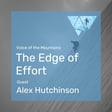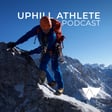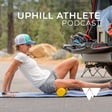
Training, Stress, and Success for Female Athletes with Uphill Athlete Coach Alison Naney
Uphill Athlete Coach Alison Naney has been running ultras since 2003 and coaching a broad range of athletes since 2006 through training groups, clinics, camps, and women’s retreats. Along the way she’s had two daughters, and shifted her mindset around training to fit around her family and work while still accomplishing big personal goals with her own running. Her experience as a massage therapist also guides her coaching practice to help athletes have a sustainable, long-term approach to training.
In this session Alison will discusses:
Balancing training with other life stressors for long term success and health.
Training through the menstrual cycle.
How life stress affects training.
Training for yourself rather than to fit in.
Injury prevention the key to success.
Weight loss and training.
The importance of patience. The 80/20 iceberg concept.
Fat adaptation through fasted training: is it appropriate for many women?
Postpartum recovery and return to training.
Training through pregnancy.
This was originally recorded with a (great!) live audience via Zoom on May 28, 2020.



















